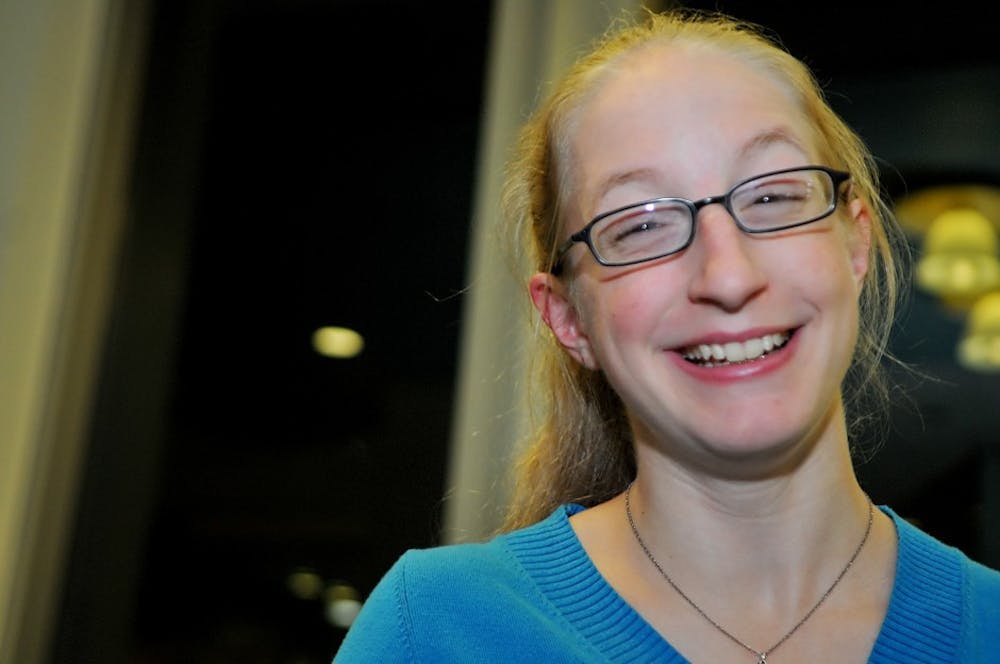
Before she was a student in the School of Nursing, sophomore Natasha Rosenberg was the very first Miss Sweetie Poo.
Miss Sweetie Poo, also known fondly as MSP, is a key player at the Ig Nobel Prize Ceremony held every year around early October at Harvard University’s Sanders Theatre. The Ig Nobel rewards research that is amusing in addition to being innovative — or, as Ig Nobel founder Marc Abrahams puts it, “research that makes people laugh and then think.”
As the original Miss Sweetie Poo, Rosenberg had to interrupt any award recipient whose acceptance speech went over about a minute by walking on stage and repeating the words “Please stop, I’m bored” until the speaker exited.
“I was never actually bored,” Rosenberg said, laughing. Although she was only eight years old when she began the job, Rosenberg had already been around the eccentric Ig Nobel team for years, since her parents were friends with Abrahams and had gotten involved in the awards from the beginning.
“It was a really brilliant community of scientists,” she said.
This year’s roundup — which marked the 20th ceremony in Ig Nobel history — included a medicine award for research on treating asthma symptoms with roller coaster rides, an engineering award for the use of a remote-control helicopter to “perfect the collection of whale snot” and a peace prize for a project showing that swearing can relieve physical pain.
The awards are part of Abrahams’ larger Improbable Research organization, which also produces a magazine, live shows and books. Together with other scientists and journalists from around the world, the magazine editors make up the Ig Nobel Board of Governors, which selects winners from a pool of nominees that Abrahams said numbered 7,000 this year.
Abrahams said he felt compelled to start the Ig Nobels in 1991 after becoming the editor of a science publication, a position that exposed him to all kinds of research that he felt deserved more attention. “People had done things that were not just remarkable, but stunningly funny,” he said.
As the ceremony has grown over the years, it has taken on a number of funny quirks of its own.
The awards are presented by actual Nobel Prize recipients that Abrahams asks to participate. This year, 2000 Ig Nobel award recipient Andre Geim won a Nobel Prize in physics, becoming the first person to win both awards as an individual.
Yet even this relationship between the Nobel Prizes and the Ig Nobels, Abrahams explained, does not interfere with the Ig Nobels’ informality or sense of humor.
The ceremony features a contest to “win a date” with a Nobel Laureate, “sweepers” responsible for clearing away paper airplanes that the audience throws on stage and an original opera, with this year’s topic being bacteria, Abrahams said.
Rosenberg, who could not attend the last two ceremonies because of her studies at Penn, said that she misses the Ig Nobel experience. “I was sorely tempted to skip classes to attend,” she said.
She considers the awards an opportunity for scientists to celebrate the joy and “randomness” in their field. “They sort of get to make fun of themselves and how serious they usually are,” she said.
The Daily Pennsylvanian is an independent, student-run newspaper. Please consider making a donation to support the coverage that shapes the University. Your generosity ensures a future of strong journalism at Penn.
DonatePlease note All comments are eligible for publication in The Daily Pennsylvanian.








